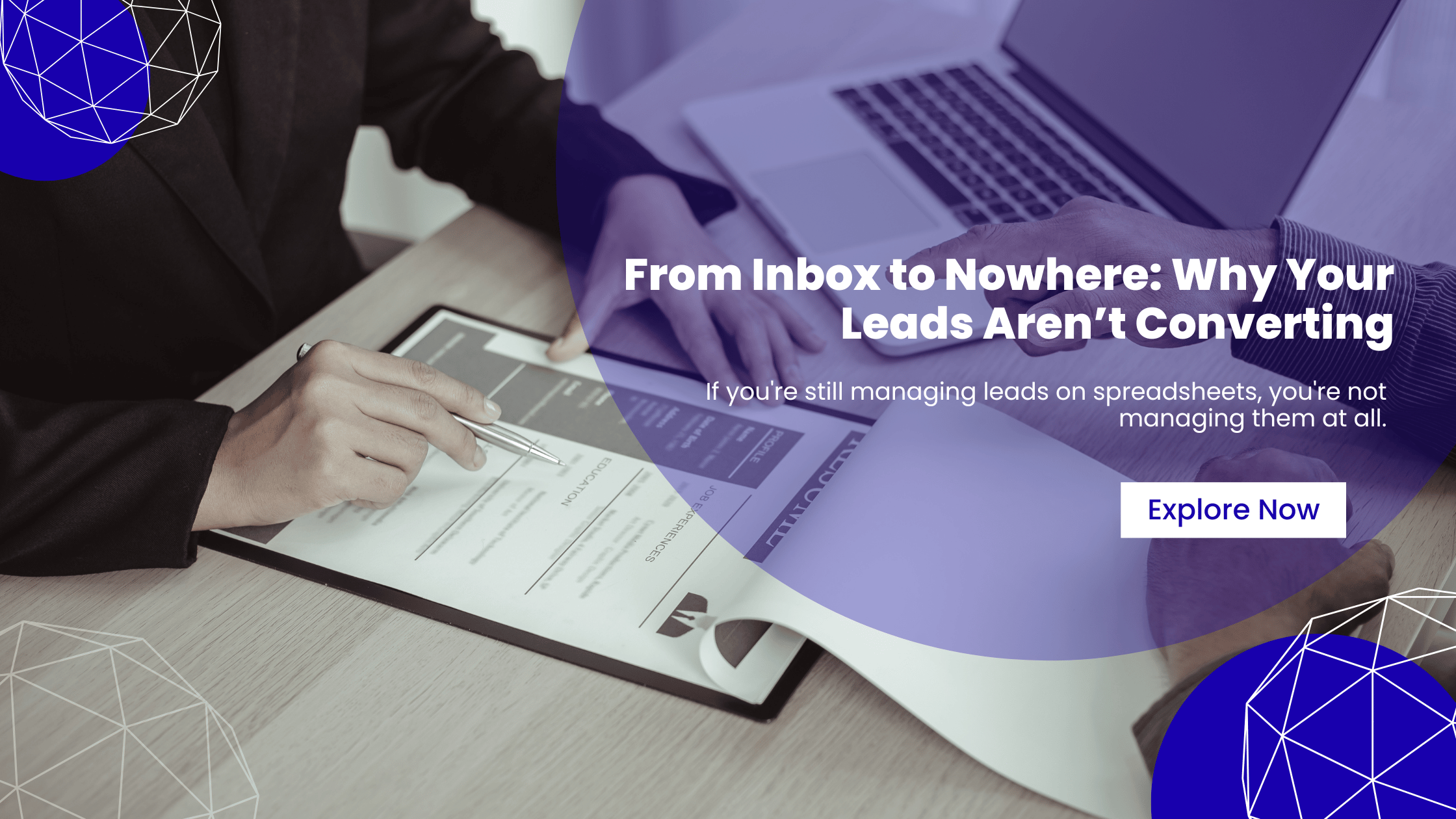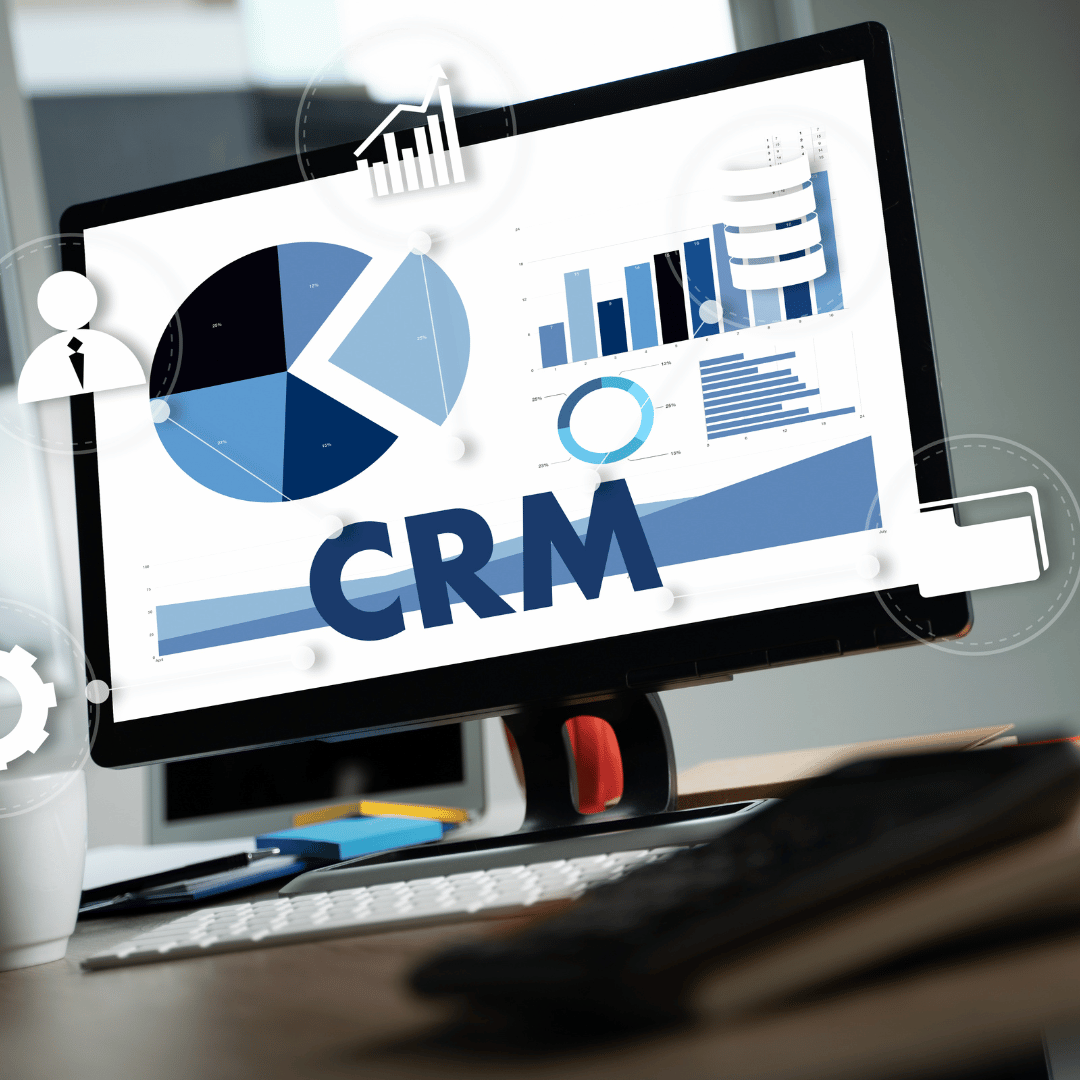The Real Reason Why Your Leads Aren’t Converting
It’s not just bad luck. There’s a reason your leads aren’t turning into customers. Maybe they’re confused, unsure, or simply not feeling it. Let’s get real about what’s going wrong behind the scenes and how a few smart shifts can finally get them to say yes.

You’ve got the traffic. You’ve got the leads. You’re following up religiously, maybe even manually updating Excel sheets like it’s 2009. And yet, your conversion rates refuse to budge. Sound familiar?
For most businesses, especially small ones the culprit isn’t poor marketing or a weak sales pitch. It’s something deeper and sneakier. It is the lack of a structured, intelligent system to manage relationships and nurture leads at scale.
Let’s pull back the curtain and talk about what’s really eating up your conversions, and how the right CRM software can flip the script completely.
The Lead Graveyard Nobody Talks About

Every business collects leads through ads, events, websites, referrals. But what happens next?
In many start-ups and small businesses, the process goes something like this: A lead comes in. The salesperson notes it down. Maybe it gets added to a sheet. A few follow-ups happen. Some leads go cold. Others are forgotten. And just like that, they disappear into the lead graveyard.
Here’s the truth: your leads aren't converting because you're not managing them. You're just reacting to them.
And this is where the lead management system built into a CRM for small business comes in, not just as a tool, but as a lifeline.
Your Sales Funnel Has a Memory Problem
Sales isn’t just about closing. Every time you call a lead and forget what they said last time, every time they have to repeat their problem, every time you miss their birthday or a promised callback, it chips away at trust.
Small businesses often lose deals not because their product isn’t great, but because they don’t remember enough about the person on the other side.
Customer relationship management is exactly what it sounds like: managing relationships, not just contact details. And in a world where customers expect personalisation and attention, forgetting their story is the fastest way to lose them.
Get the Atom Experience For Free. Click Here.
Manual Effort Is Killing Your Momentum

Let’s talk about the chaos of manual follow-ups.
When your sales team is working out of WhatsApp, email, spreadsheets, and scattered sticky notes, follow-ups fall through the cracks. Leads don’t get nurtured. Timely nudges don’t happen. And your team burns out juggling admin instead of focusing on actual conversations.
Now imagine this: You get a lead. The system captures it instantly, tags its source (Google ad, Instagram, referral), and assigns it to a rep. Automated reminders are set. If the lead opens your email or clicks a link, you’re notified. If they go cold, the system follows up. Everything is logged and easy to track.
This is exactly what a cloud CRM solution does.
And the best part? It frees your team from the burden of remembering everything and lets them focus on closing deals.
Your Follow-up Game Is Weak (And You Don’t Know It)

A Harvard Business Review study found that companies who respond to leads within an hour are 7x more likely to qualify the lead compared to those who respond later. But here’s the catch: most small businesses don’t even realise how long they take to respond. They rely on emails that get buried, or calls that don’t happen because the person in charge was busy putting out fires elsewhere.
A CRM for small businesses offers tools that enable instant follow-ups, auto-responses, lead prioritisation, and real-time alerts. That’s a competitive edge. Because leads have short attention spans. Blink, and they’re gone.
You're Selling, Not Listening
Let’s be honest: a lot of sales interactions feel transactional. Pushy. Robotic. Like a script you can hear a mile away.
The real magic happens when you start listening. When you know what stage your lead is in, what objections they’ve raised before, what they liked on your last call.
CRMs let you track every interaction, be it calls, notes, emails, or preferences. It turns that data into better conversations. Not just more calls, but smarter ones. Not just more emails, but personalised ones. So you get quality, as well as quantity.
Marketing and Sales Aren’t Talking to Each Other

Here’s another conversion killer: stagnant teams.
Your marketing team is generating leads, but your sales team has no context about where they came from, what campaign they clicked on, or what page they visited before signing up. So the sales conversation starts cold. Disconnected. Ineffective.
This is where a cloud CRM solution can unify your front-end efforts. By integrating with your landing pages, ad platforms, social campaigns, and even WhatsApp or SMS tools, a CRM gives your sales team a 360° view of each lead’s journey.
It transforms the conversation from “So, what are you looking for?” to “I saw you checked out our demo video yesterday, do you have questions about pricing?”
Now that’s a lead that feels seen. And leads that feel seen? They convert.
Make CRM a Culture, Not Just a Tool

If you’re wondering, “So is CRM really the answer to my conversion problems?”, well yes and no.
Yes, because the right customer relationship management system will organise your chaos, improve your response times, automate your follow-ups, and give you the visibility you’ve been missing.
No, because tech alone won’t save you. You need buy-in. CRM should become the culture, where every customer interaction is intentional, trackable, and relationship-driven.
When that shift happens, leads stop slipping through the cracks. And conversions? They start rising.
You Don’t Need More Leads, You Need to Stop Losing the Ones You Already Have
It’s tempting to think the answer to low conversion is more ads, more reach, more leads. But if your current leads are leaking out of your funnel due to poor systems, more leads won’t fix the problem.
Before you double your marketing spend, take a hard look at what happens after a lead comes in.
That’s where the importance of CRM for small business comes into play. It’s not a “big company tool.” It’s your tool. The one that ensures every lead gets the attention it deserves. The one that turns interest into intent, and intent into action.

